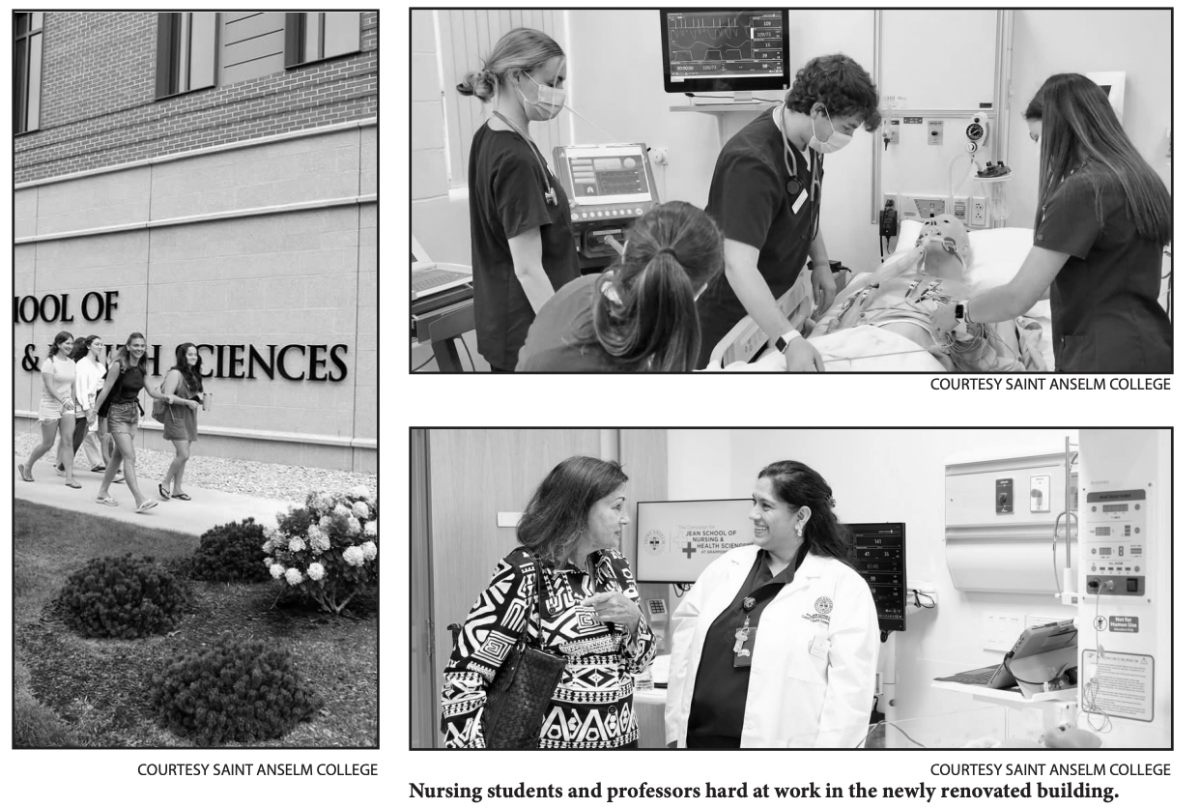Did you know that right after World War II, in 1949, Saint Anselm College first launched their nursing program? Well, with the Jean School of Nursing and Health Sciences building’s recent opening, their legacy continues. But, what are some of the realities that nursing students face today? With the semester kicking off, most of the rigorous nursing schedules are not that overpacked just yet. Brooke Gardiner ‘29 only has two rough classes so far: Anatomy and Physiology. She comments that it is tough due to having two labs on Mondays, but does not learn the material until the lectures on Tuesdays and Thursdays. Gardiner is expecting it to become more difficult with the inclusion of more nursing classes and clinicals. She does not seem to be looking forward to the clinical hours due to workload; they typically last for the entire day. Once one reaches Junior year, the coursework tends to ramp up. Kelly Hoffman ‘27 described that all of her courses are “content heavy… [and] super baseline”, so it is very important for nursing students to stay on top of everything. Kelly thoughtfully planned her schedule: having her classes set for Mondays and Wednesdays, with her clinicals on Tuesdays. Last semester, Hoffman completed her clinical at Hangover Hill. There, she worked alongside the nursing home staff to take care of the patients there. She would go into the facility once every week for six hours. This fall, Hoffman is doing her clinical at Elliot Hospital in Manchester. Every Tuesday, she will be there from six o’clock in the morning to six o’clock at night working within the Cardiac Intermediate Unit. This unit works specifically to perform specialized care for patients with cardiac conditions. For those who are new to clinicals, Hoffman gives some guidance: “alternate who is driving to the clinical group, and make sure to eat breakfast and pack a good lunch. Try to relate things that you already know, while also being open to learn new things”. She expressed that she loves clinicals due to the hands-on experience that is gained. Clinical exposure is the best way to learn, and being with peers and phenomenal instructors makes the experience rewarding with the ability for success. According to Ella Malvone ‘26, she feels that the schedule fits well since the classes will all align to the learning being done in clinical studies. Clinicals typically fall on days that are opposite of the nursing courses; therefore, the class schedule is very complementary with the clinicals. Hoffman’s schedule reflects similarly to what Malvone has described. Kelly admits it may seem “cliché”, but having good time management skills plays an essential role in excelling in the nursing program. Malvone expands: “balance your school work with spending time with friends”. She suggests getting homework done with friends to ensure that one is keeping up with their studies, while holding up their social life. Hoffman says that it is vital to not be studious all of the time, trying to stray from academic fatigue. Planning out what has to be done in one day can be helpful with scheduling, avoiding being too overwhelmed. To offer one final piece of advice: do not be afraid to ask for help from your professors, peers, and tutors– everyone wants you to succeed!
Nursing school prepares new look for clinical programs
Liam Hendricks, Crier Staff
September 26, 2025
Story continues below advertisement
0


